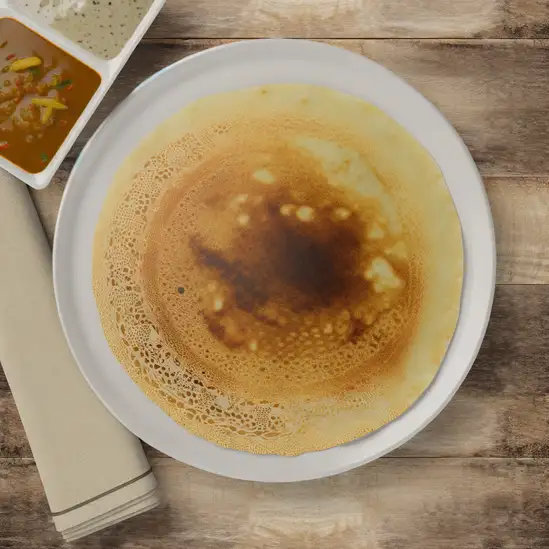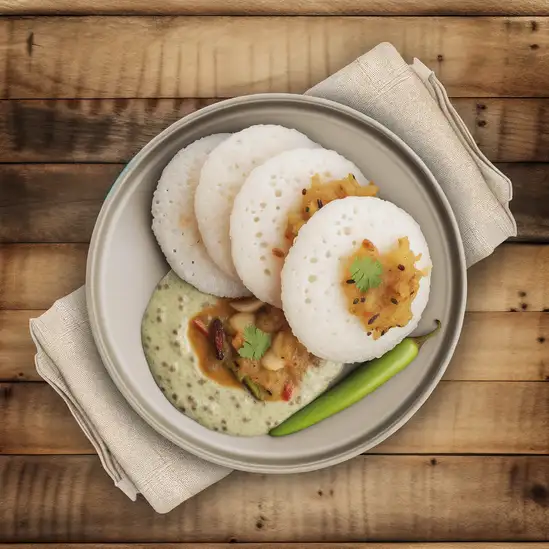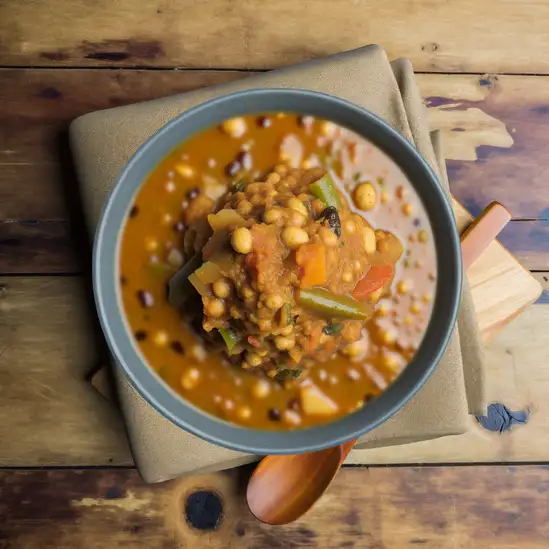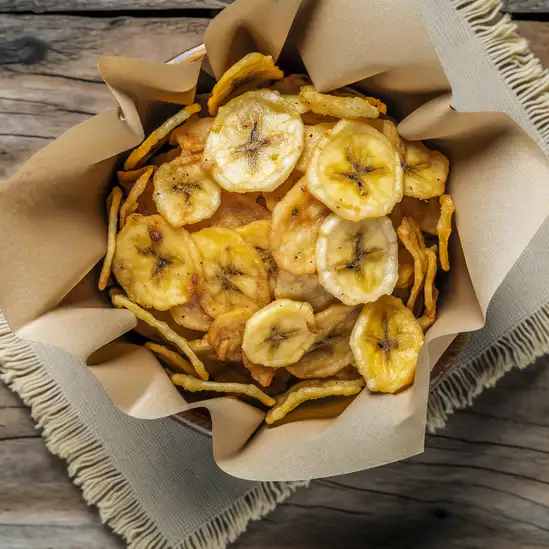



If you ever find yourself wandering through the heart of Tamil Nadu,Madurai is a city that grabs you with its vibrant pulse and timeless spirit. The moment you step into its bustling streets,you’re wrapped in a tapestry of colors and sounds—the rhythmic clang of temple bells,the chatter of vendors selling jasmine garlands,and the scent of sizzling street food mingling with incense. It’s a place where ancient traditions live side by side with everyday life,creating an atmosphere that feels both sacred and warmly familiar. Madurai’s soul is anchored by the Meenakshi Amman Temple,a sprawling marvel that feels like stepping into a living painting. The intricate carvings and towering gopurams are mesmerizing,but what really stays with you is the hum of devotion and the gentle chaos of pilgrims and locals moving through the temple’s courtyards. Outside,the city’s markets burst with spices,silk,and vibrant textiles,inviting you to slow down and savor the sensory overload. What I love most about Madurai is how it invites you to taste its stories—literally. From steaming idlis and spicy chutneys at a roadside stall to the sweet,milky filter coffee that feels like a warm hug,every bite connects you to the city’s rich heritage. Madurai isn’t just a place to visit; it’s a place to feel alive,where every corner holds a story waiting to be discovered.
The information on this page is currently being reviewed by Tripkliq and should be used as a guide only
Eng word: Hello
Eng pronunciation: Vanakkam
Local language: வணக்கம்
Eng word: Goodbye
Eng pronunciation: Priyavidai
Local language: பிரியாவிடை
Eng word: Thank you
Eng pronunciation: Nandri
Local language: நன்றி
Eng word: How much
Eng pronunciation: Evvalavu
Local language: எவ்வளவு
Eng word: Toilet
Eng pronunciation: Kazhipparai
Local language: கழிப்பறை
Eng word: Help me
Eng pronunciation: Enakku Udhavungal
Local language: எனக்கு உதவுங்கள்
Eng word: Yes
Eng pronunciation: Aam
Local language: ஆம்
Eng word: No
Eng pronunciation: Illai
Local language: இல்லை
Eng word: Excuse me
Eng pronunciation: Mannikkavum
Local language: மன்னிக்கவும்
Madurai is one of the oldest continuously inhabited cities in the world, with a history dating back over 2,500 years.
The Meenakshi Amman Temple, dedicated to Goddess Meenakshi and Lord Sundareswarar, is a historic Hindu temple and a major pilgrimage site, known for its stunning architecture and intricate carvings.
Madurai was the seat of the Tamil Sangams, ancient academies of Tamil poets and scholars, which produced some of the earliest Tamil literature.
The Nayak Dynasty ruled Madurai from the 16th to the 18th century and contributed significantly to the city's architectural and cultural heritage, including the construction of the Thirumalai Nayakkar Palace.
Built in 1636 by King Thirumalai Nayak, this palace is a classic example of Indo-Saracenic architecture and is renowned for its majestic pillars and elaborate stucco work.
The Gandhi Memorial Museum in Madurai is one of the five Gandhi Sangrahalayas in India, showcasing the life and contributions of Mahatma Gandhi, including a blood-stained garment worn by him when he was assassinated.
The Chithirai Festival, celebrated in April, is one of the longest and most significant festivals in Madurai, commemorating the celestial wedding of Goddess Meenakshi and Lord Sundareswarar.
The Koodal Azhagar Temple is an ancient temple dedicated to Lord Vishnu, known for its beautiful Dravidian architecture and the unique depiction of Vishnu in three postures:sitting, standing, and reclining.
The Vaigai River, which flows through Madurai, has been a lifeline for the city for centuries, providing water for agriculture and daily life, and is often associated with the city's rich history and culture.
In Madurai, the most common Power Adaptor is Type C, Type D, Type M.







Crispy crepes made from fermented rice and lentil batter, often served with various chutneys and sambar.

Steamed rice cakes served with sambar and coconut chutney, a staple breakfast item in South India.

A comforting dish made from rice and lentils, seasoned with black pepper, cumin, and ghee, often served with coconut chutney.

A lentil-based vegetable stew flavored with tamarind and spices, commonly served with rice or dosa.

Crispy fried banana slices, a popular snack in Madurai, often enjoyed with tea.

A street food dish made from shredded parotta mixed with vegetables, eggs, and spices, often served with a spicy gravy.

A variation of dosa filled with spicy meat curry, popular among non-vegetarians.

A spicy and aromatic chicken curry made with a blend of Chettinad spices, known for its rich flavor.

A popular cold dessert made with milk, almond gum, and flavored with rose syrup, perfect for the hot climate.

A fragrant rice dish cooked with marinated mutton and spices, often served with raita.
Known as the 'Queen of the Arabian Sea',Kochi is famous for its backwaters,islands like Willingdon Island,and Fort Kochi,making it a top destination for cultural and scenic exploration.
ExploreIf you ever find yourself craving a place where the ocean breeze carries stories of adventure and the rhythm of waves sets your pace,Port Blair is where you want to be. This city feels like a gentle invitation to slow down and soak in the raw beauty of island life. The moment you step off the ferry or plane,the salty air mingled with the scent of tropical flowers wraps around you like a warm hug. Palm trees sway lazily against a backdrop of turquoise waters,and the chatter of locals blends with the distant call of seabirds,creating a soundtrack that’s both lively and soothing.
Port Blair isn’t just a gateway to the Andaman Islands; it’s a place where history whispers through the walls of the Cellular Jail,a somber yet inspiring reminder of India’s past. But beyond its historical weight,the city pulses with a laid-back charm—colorful markets burst with fresh seafood,exotic fruits,and spices that tease your senses. Grab a plate of freshly caught fish grilled with local herbs,and you’ll taste the ocean’s essence in every bite.
What makes Port Blair truly special is its blend of cultures and the warmth of its people. You’ll find a mix of indigenous traditions and influences from across India,all coexisting in a relaxed,welcoming vibe. Whether you’re wandering along Corbyn’s Cove Beach at sunset or chatting with fishermen mending their nets,there’s a genuine friendliness here that makes you feel like you belong. It’s a place that invites you to explore,reflect,and simply be.
If you ever find yourself wandering through the southern tip of India,Thiruvananthapuram will wrap around you like a warm,familiar hug. The city hums with a gentle rhythm—part ancient tradition,part vibrant modern life—that instantly makes you feel at home. Imagine walking along streets lined with swaying coconut palms,the salty breeze from the nearby Arabian Sea mingling with the rich aroma of spices and jasmine wafting from bustling markets. It’s a place where temple bells chime softly in the morning,blending seamlessly with the chatter of locals and the distant crash of waves.
What’s truly captivating about Thiruvananthapuram is its effortless balance between calm and energy. You can spend your mornings exploring the majestic Padmanabhaswamy Temple,its intricate carvings telling stories centuries old,then lose yourself in the colorful chaos of Chalai Market,where vendors call out,selling everything from fresh mangoes to handwoven fabrics. The city’s soul is deeply rooted in its culture—classical dance performances,traditional Kerala cuisine bursting with coconut and curry leaves,and the warm smiles of people who take pride in their heritage.
Evenings here are magical. Head to the nearby Kovalam Beach,where the sun dips low,painting the sky in hues of orange and pink,and the sound of waves lapping against the shore feels like nature’s lullaby. Whether you’re savoring a plate of spicy fish curry or simply sitting by the shore,Thiruvananthapuram invites you to slow down,breathe deeply,and soak in a world that’s both timeless and alive.
If you ever find yourself craving a place where spirituality and the sea blend effortlessly,Rameswaram is that rare spot that wraps you in a gentle,timeless embrace. As you wander through its sun-warmed streets,there’s a calm rhythm to the town—temple bells chiming softly,fishermen hauling in their catch,and the salty breeze carrying whispers of ancient stories. The air is tinged with the scent of jasmine and incense,mingling with the fresh ocean spray,creating a sensory tapestry that feels both grounding and uplifting.
Rameswaram’s heart beats in its temples,especially the magnificent Ramanathaswamy Temple,where intricate corridors and sacred tanks invite quiet reflection. But beyond the spiritual,there’s a vibrant local life—colorful markets bursting with fresh spices,handwoven fabrics,and the chatter of friendly vendors eager to share a smile or a story. Don’t miss tasting the local flavors:crispy dosas,sweet coconut chutneys,and freshly caught seafood that tastes like the sea itself.
What makes Rameswaram truly unforgettable is its unique blend of devotion and nature. Just a short ride away,the pristine beaches stretch endlessly,where you can watch the sun dip below the horizon,painting the sky in fiery hues. It’s a place where every moment feels like a quiet celebration of life’s simple,profound beauty. Trust me,once you’ve felt Rameswaram’s gentle pulse,it stays with you long after you leave.
Imagine stepping into a place where the sun kisses your skin,the salty breeze carries the laughter of beachside chatter,and every corner hums with a laid-back yet vibrant energy—that’s North Goa for you. It’s a lively patchwork of golden sands,swaying palms,and colorful shacks where the aroma of sizzling seafood mingles with the faint scent of frangipani flowers. Whether you’re wandering through the bustling markets of Anjuna or watching the sun dip behind the waves at Calangute,there’s a rhythm here that feels both timeless and alive.
What really makes North Goa special is its blend of cultures and carefree spirit. You’ll find Portuguese-influenced architecture standing proudly alongside lively street art,while the music—from mellow acoustic sets to pulsing electronic beats—drifts through the air,inviting you to join in. The locals,warm and welcoming,add a genuine charm that makes you feel like you’re part of a big,sun-soaked family.
And the flavors! Freshly caught fish grilled with spices that tease your taste buds,tangy Goan curries,and sweet,creamy feni that’s perfect for toasting to new adventures. As night falls,the beach transforms into a playground of bonfires and music,where stories flow as freely as the ocean breeze. North Goa isn’t just a destination; it’s a feeling—a place that stays with you long after you’ve left.
Imagine stepping into a city that pulses with energy,where every street corner hums with life and stories waiting to be discovered—that’s Mumbai for you. The moment you arrive,you’re wrapped in a vibrant tapestry of sounds:the rhythmic clatter of local trains,the lively chatter of street vendors,and the distant call of temple bells blending with honking rickshaws. The air carries a mix of spices from roadside stalls,mingling with the salty breeze from the Arabian Sea,creating an intoxicating scent that’s uniquely Mumbai.
Walking through its bustling lanes,you’ll see a kaleidoscope of colors—bright saris fluttering in the wind,intricate colonial architecture standing proudly beside sleek skyscrapers,and street art that tells tales of the city’s soul. Mumbai’s character is a beautiful contradiction:it’s fast-paced yet welcoming,chaotic yet deeply rooted in tradition. The city’s heartbeat is its people—dreamers,artists,and entrepreneurs who wear their resilience and warmth like a badge of honor.
And then there’s the food—oh,the food! From the tangy,spicy street-side vada pav that feels like a warm hug,to the rich,aromatic biryanis and fresh seafood by the sea,every bite is a celebration of flavors. Mumbai invites you to lose yourself in its maze of neighborhoods,each with its own rhythm and charm,promising moments of surprise and connection. It’s not just a place to visit; it’s a city that stays with you long after you’ve left.
Unlicensed money exchangers may offer poor exchange rates or give counterfeit currency to unsuspecting tourists.
Tourists may be directed to shops claiming to sell authentic local handicrafts, but the items are often overpriced or mass-produced.
Scammers may offer fake pilgrimage or temple tour packages, taking money upfront and providing subpar or no services.
Unlicensed guides may approach tourists near temples or attractions, offering services but providing little value or incorrect information.
Auto rickshaw drivers may refuse to use the meter and charge tourists exorbitant fares for short distances.
Some restaurants or street vendors near tourist spots may inflate prices for tourists or add hidden charges to the bill.
Some individuals may demand money from tourists for taking photos in public areas, claiming it is a local rule.
Crowded areas like the Meenakshi Temple or local markets can be hotspots for pickpockets targeting distracted tourists.
Scammers may pose as temple staff and pressure tourists into making 'mandatory' donations, which are pocketed by the scammers.
The use, possession, and trafficking of drugs are strictly prohibited in India under the Narcotic Drugs and Psychotropic Substances (NDPS) Act of 1985. Penalties for drug-related offenses are severe and can include long prison sentences and hefty fines. Tourists should avoid any involvement with illegal drugs to avoid serious legal repercussions.
In Madurai, as in the rest of India, smoking is prohibited in public places such as restaurants, hotels, public transport, and educational institutions. The Cigarettes and Other Tobacco Products Act (COTPA) of 2003 regulates smoking in public places. Violators can be fined. Designated smoking areas may be available in some establishments, but it is always best to ask before lighting up.
Vaping is subject to strict regulations in India. The Indian government banned the production, import, sale, and advertisement of e-cigarettes and vaping products in 2019. Possession and use of these products can lead to legal consequences, including fines and imprisonment. Tourists should avoid bringing vaping devices and e-liquids into the country.
What are other people saying about Madurai?
Recent Social posts about Madurai
There is nothing to show you for now.